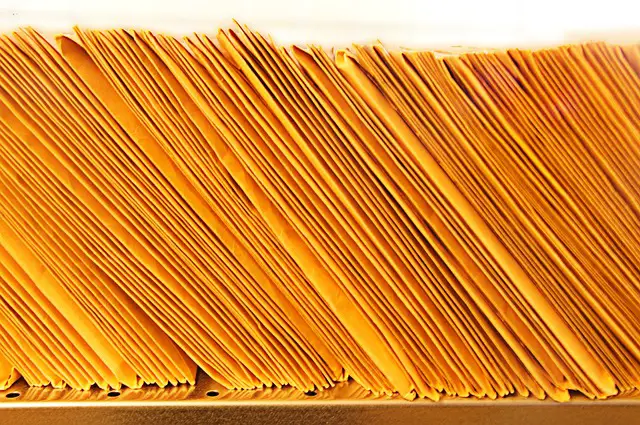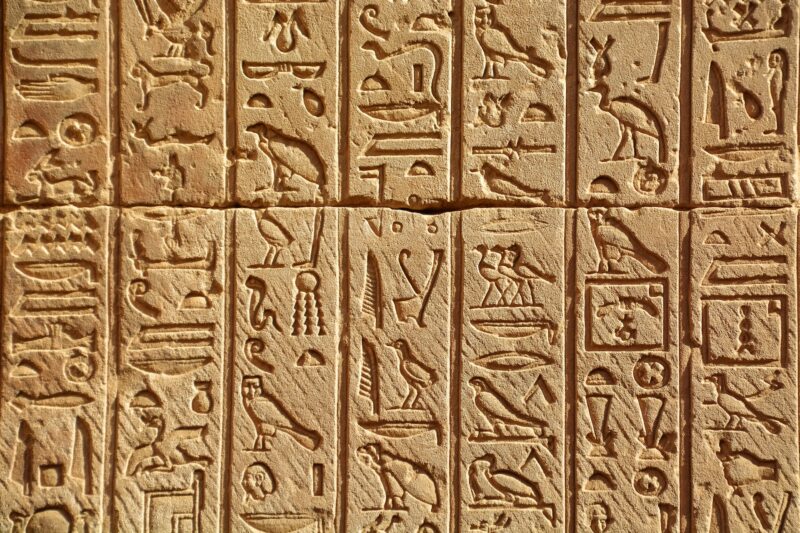Archivists are responsible for preserving historical records, while historians interpret those records to write history. Historians research and write about specific topics in history, using archives as one of their primary sources. In contrast, archivists collect, organize, and preserve all types of historical records so that they can be used by future generations.
Who is an archivist?
(Photo by Centre for Ageing Better on Unsplash )

An archivist is someone responsible for the collection, organization, and preservation of historical records. They may work in a variety of settings, such as museums, libraries, government agencies, or private companies. Historians are scholars who study the past through these records. While there is some overlap between the two fields, they are distinct professions. Archivists focus on the physical care of records, while historians use them to interpret the past.
Who is a historian?
A historian is a person who studies and writes about past events, with the goal of understanding and interpreting the causes, effects, and significance of those events. Historians use a variety of sources, including written documents, artifacts, and oral histories, to gather information about the past. They analyze and interpret this information to create a narrative that explains what happened and why. Historians may specialize in a particular time period, geographic region, or topic of interest, such as political history, social history, military history, or cultural history. They may work in academic institutions, government agencies, museums, archives, or as independent researchers or writers.
Do historians and archivists do the same work?
An archivist is someone responsible for preserving historical records, while a historian is someone who studies and interprets history. Both occupations are important in their way, but there are some key differences between the two.
For one, an archivist’s job is mainly focused on the preservation of records, while a historian’s job entails writing about and researching history. This means that an archivist might spend more time organizing and storing documents, while a historian might spend more time reading and writing about them.
Another difference between the two occupations is that an archivist typically works with primary sources, while a historian may also work with secondary sources.
Primary sources are original documents or eyewitness accounts that provide firsthand evidence of an event. Secondary sources are interpretations or analysis of primary sources. This means that an archivist might spend more time working with actual historical documents, while a historian might spend more time reading and analyzing other interpretations of history.
Both occupations are important in the study of history, and both require similar skills such as strong research and writing abilities. However, the key difference between archivists and historians lies in their focus – archivists focus on preservation while historians focus on interpretation
What qualifications do I need to be an archivist?
There are no formal qualifications required to become an archivist, but most archivists have at least a bachelor’s degree in history or a related field. Many archivists also have a master’s degree in library science, information science, or a similar field.
What is a historical archivist?
The work of a historical archivist can be divided into two main categories: collection management and preservation.
Collection management involves acquiring and cataloging historical records. This can be done through donations, purchases, or transfers from other institutions. Once acquired, archivists will organize and describe the records so they can be easily found and used by researchers.
Preservation is essential to ensure that historical records are available for future generations. Archivists use a variety of methods to preserve records, including digitization, microfilming, and storage in climate-controlled facilities. They may also provide guidance on how to properly handle and care for historical materials.
What is difference between history and a historian?
History is the study of past events, particularly in human affairs, while a historian is a person who studies and writes about past events, with the goal of understanding and interpreting the causes, effects, and significance of those events.
In other words, history is the subject matter or content of what happened in the past, while a historian is the person who researches and interprets the past to create a narrative or understanding of that history.
History is a broad field that encompasses a wide range of topics, events, and time periods, while historians are specialists who focus on specific areas of history, such as political history, social history, military history, or cultural history. Historians use a variety of sources to gather information about the past, including written documents, artifacts, and oral histories, and they analyze and interpret this information to create a narrative that explains what happened and why.
So, while history is the content of what happened in the past, a historian is the person who studies and writes about that history, interpreting and contextualizing the events to make sense of them for current and future generations.
What are the characteristics of a historian?
Some of the characteristics of a historian may include:
Curiosity: A historian is naturally curious and interested in the past. They have a desire to learn about and understand the events and people that shaped the world we live in today.
Analytical thinking: Historians use critical and analytical thinking skills to examine and interpret historical events. They are able to identify patterns, connections, and cause-and-effect relationships between events.
Attention to detail: Historians pay close attention to details and have a meticulous approach to research and analysis. They are able to spot inconsistencies or inaccuracies in historical records.
Objectivity: Historians strive to remain objective and unbiased in their research and analysis. They are careful not to let personal opinions or beliefs influence their interpretations of historical events.
Effective communication: Historians are skilled writers and communicators who are able to convey complex ideas and historical information in a clear and engaging way.
Open-mindedness: Historians are open-minded and willing to consider alternative interpretations of historical events. They are able to weigh different perspectives and evidence to arrive at their own conclusions.
Patience: Historians need to be patient, as research and analysis of historical events can be time-consuming and require persistence to uncover and interpret all the available evidence.
Historians are individuals who possess a unique combination of intellectual curiosity, analytical thinking, attention to detail, objectivity, effective communication, open-mindedness, and patience, all of which are essential to the practice of history.
What is the difference between an archive and a library?

An archive and a library are both institutions that collect and preserve information resources, but they serve different purposes and contain different types of materials.
A library is an institution that collects and provides access to books, journals, magazines, and other written materials. Libraries are typically organized by subject matter, with books and other materials arranged according to the Library of Congress Classification or Dewey Decimal Classification systems. Libraries may also provide access to electronic resources, such as databases, e-books, and online journals.
On the other hand, an archive is an institution that collects and preserves historical records and documents. Archives contain unique, original documents that are not available elsewhere, such as manuscripts, personal papers, photographs, maps, and government records. Archives are organized based on the provenance, or the origin or source of the records, rather than subject matter.
In summary, the main difference between an archive and a library is that a library collects and provides access to published materials, while an archive collects and preserves original documents and records. While libraries are organized by subject matter, archives are organized based on the provenance of the materials.
What are the skills of an archivist?
An archivist is a professional who manages and preserves historical records and documents in archives. Some of the key skills required to be an archivist include:
- Organization: Archivists must have strong organizational skills to manage and categorize large volumes of historical materials, such as documents, photographs, and audiovisual recordings.
- Attention to detail: Archivists need to have an eye for detail to accurately catalogue and describe historical materials, ensuring that they can be easily accessed and understood by researchers.
- Preservation: Archivists need to have knowledge of preservation techniques to ensure that historical materials are stored and handled in a way that minimizes damage and deterioration over time.
- Information management: Archivists must be proficient in information management tools and software to ensure that records are properly cataloged, indexed, and accessible to researchers.
- Communication: Archivists need to have excellent communication skills to work collaboratively with researchers, donors, and other stakeholders to ensure that the historical materials are properly preserved and made available for research.
- Analytical skills: Archivists must be able to critically analyze and evaluate historical materials to understand their context and significance.
- Research skills: Archivists should have strong research skills to be able to locate and identify historical materials, as well as to help researchers navigate and understand the archival collections.
- Technical skills: Archivists must have knowledge of digital preservation techniques and be comfortable working with digital materials and technologies.
Archivists need a combination of technical and interpersonal skills to manage and preserve historical records, and to make them accessible to researchers and the wider public.
Featured Image by Jeremy Bezanger on Unsplash








